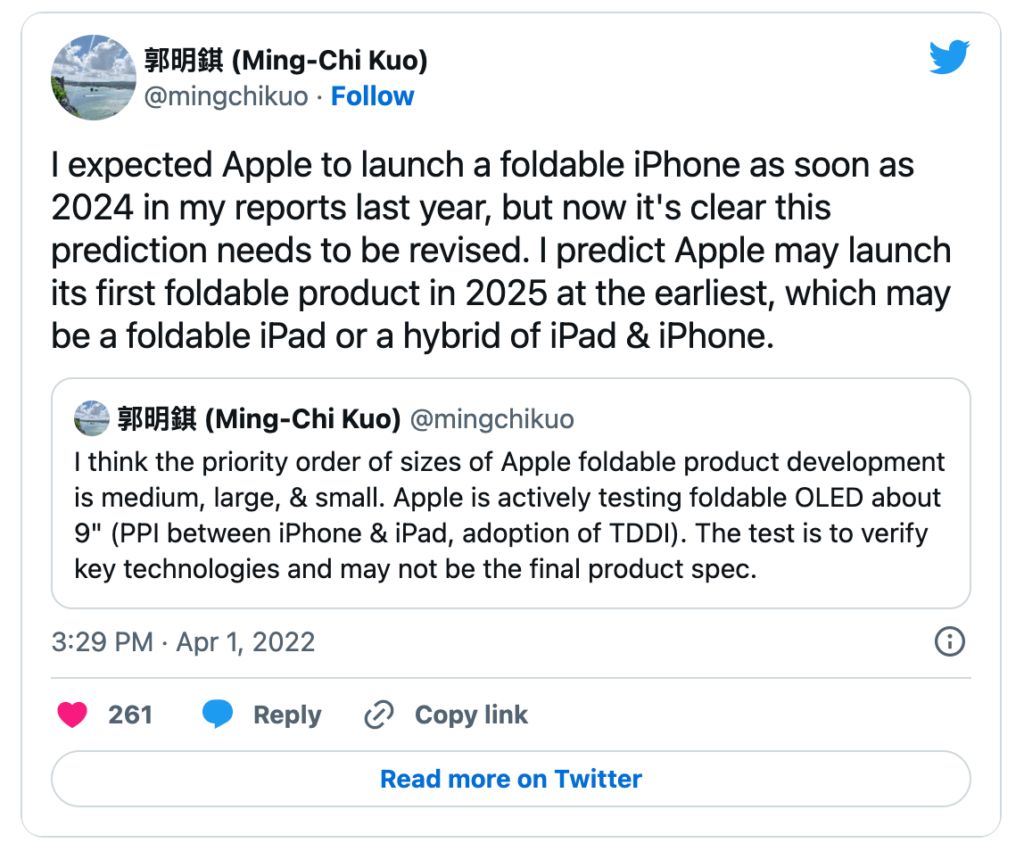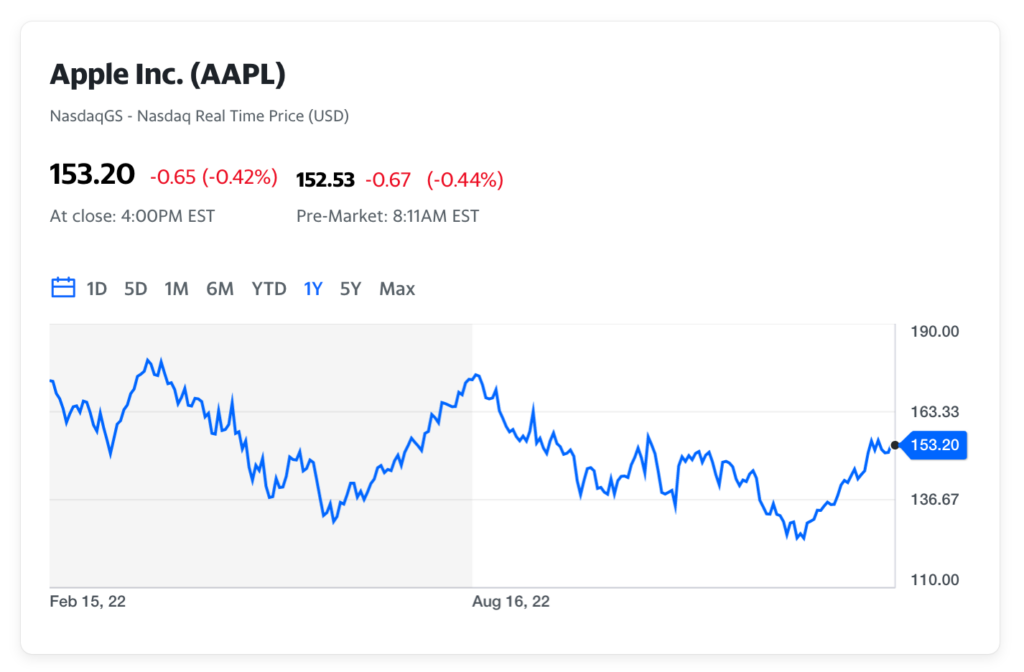There may still be life for Apple’s long-rumored foldable iPhone. On Monday The U.S. Patent Office published that it awarded the tech giant a patent for a display with touch sensors. Apple (AAPL) specifically refers to a foldable electronic device in the patent’s abstract.
UBS analyst David Vogt says that while there’s no indication that we’ll see a foldable iPhone this year, the introduction of such a product in the future could help boost iPhone sales around the world.
“We believe that a foldable iPhone model could lead to an uptick in consumer purchasing and upgrade rate within the smartphone segment,” Vogt wrote in a note to investors. “If a foldable device compresses the upgrade rate for iPhones or attracts ‘switchers’ from the Android ecosystem, iPhone unit growth could come in above our 238 million estimate in [fiscal 2024] given an installed base of roughly 1.2 billion iPhones and roughly 1.3 billion smartphones shipped a year.”
Rumors of a foldable iPhone have been circling for years. In April 2022, FT International analyst Ming-Chi Kuo predicted that the folding smartphone would hit stores in 2025, potentially as a foldable iPhone/ iPad hybrid.

In 2021, Bloomberg’s Mark Gurman, who is known for accurately reporting Apple products before the company announces them, said it would be two to three years before the company launches a foldable device.
Apple rival Samsung already has two foldable smartphones: the Galaxy Z Fold 4, which has a vertical crease down the center of the display that makes it fold like a book, and the Galaxy Z Flip 4, which features a horizontal crease that allows it to fold like a makeup compact. Both phones, however, are marketed as premium devices, with the Z Flip 4 starting at $999, and the Z Fold 4 starting at $1,799.
Introducing foldable smartphones, however, could help goose Apple’s iPhone sales at a time when global phone sales are coming off of pandemic highs. According to IDC’s Worldwide Quarterly Mobile Phone Tracker, smartphone shipments fell 11.2% in 2022. Apple, alone, saw a 14.9% decline in Q4.

Apple’s iPhone revenue in Q1, which includes sales during the holiday, meanwhile, missed analysts’ expectations, coming in at $65.7 billion versus the $68.3 billion Wall Street was anticipating.
Still, the smartphone maker, like other tech giants, regularly files for and receives patents for technologies that never reach consumers. In other words, a folding iPhone could just be something the company is taking seriously enough to patent, but not necessarily make. And while iPhone sales did decline in Q1, much of that was seemingly tied to manufacturing issues caused by COVID lockdowns and worker protests in China.
What’s more, as Vogt points out, in a survey of 7,000 smartphone users in the U.S., U.K., and China, UBS found that a folding phone was the least important feature customers were looking for in a new handset.
Despite that, Apple could still launch a foldable phone in the coming years as the technology becomes more affordable for consumers. Or maybe the company will just end up abandoning our phones for the metaverse. Who knows?
Source: finance.yahoo.com

